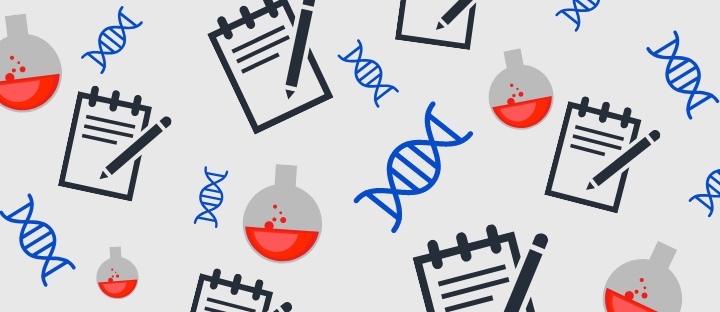#ScienceSaturday posts share relevant and exciting scientific news with the KAND community. This project is a collaboration between KIF1A.ORG’s Research Engagement Team Leader Alejandro Doval, President Kathryn Atchley and Chief Science Officer Dr. Dominique Lessard. Send news suggestions to our team at impact@kif1a.org.
Recent KIF1A-Related Research
Genetic heterogeneity in infantile spasms
Infantile spasms (IS) are a specific type of epilepsy observed in babies. These seizures present as quick moments of muscle stiffening and often look like a baby being startled. Like other forms of epilepsy, the cause of IS is thought to be genetically heterogeneous. Genetic heterogeneity occurs when one clinical phenotype can be caused through multiple different genetic mechanisms. In other words, this means that there are a variety of different genes that could play a causative role in IS.
In this study the authors aimed to clarify the genetic landscape of IS related genes. To do so, genetic sequencing of 92 individuals with IS was conducted. Of the genes sequenced 42 were IS candidate genes, and 53 were established developmental and epileptic encephalopathy (DEE; discussed in recent Science Saturday posts) related genes. After analysis, 6 out of the 95 sequenced genes were identified with pathogenic variants including KIF1A! What does this mean? Importantly, it provides a link between KIF1A mutation and IS. As multiple forms of epilepsy are a major presenting feature of KAND, this finding helps us further understand a global link between KAND-related KIF1A mutations and seizures types.
Rare Disease News
FDA scientists appear to offer major endorsement of Biogen’s controversial Alzheimer’s treatment
Biogen’s treatment for Alzheimer’s disease known as aducanumab is trending towards U.S. Food and Drug Administration approval. The release of this new drug would have large implications for potential Alzheimer’s disease therapeutics, as it would be the first new Alzheimer’s therapy in almost two decades. The approval of aducanumab has been a contentious process so far with initially conflicting clinical trial data. However, after a deep dive of the clinical trial results it was determined that the data suggests aducanumab is a helpful treatment for patients. The next step for FDA approval involves a meeting of advisors who will vote (nonbinding) on recommending aducanumab’s approval. Aducanumab is categorized as a monoclonal antibody drug, a type of treatment that mimic parts of our immune system. If you’d like to take some time to learn more about our immune systems and monoclonal antibody treatment, check out the video below!
Part 2 – Gene Therapy: A Patient Advocate’s Perspective
We’re following a four-part series on Global Genes’ RARE Cast podcast about gene therapy. The second episode is a 30-minute conversation with Kim Nye, founder of the TESS Research Foundation. Enjoy this interview in which Kim discusses becoming a rare disease advocate, how gene therapy fits into the TESS Research Foundation’s agenda and dosing considerations for experimental gene therapy.
“… what’s maddening about current treatments for SLC13A5 epilepsy is that we are really only treating the symptoms… but we’re never really getting at the underlying cause. What’s extremely attractive about gene therapy is that it aims to address the underlying cause…”
Kim Nye, TESS Research Foundation

